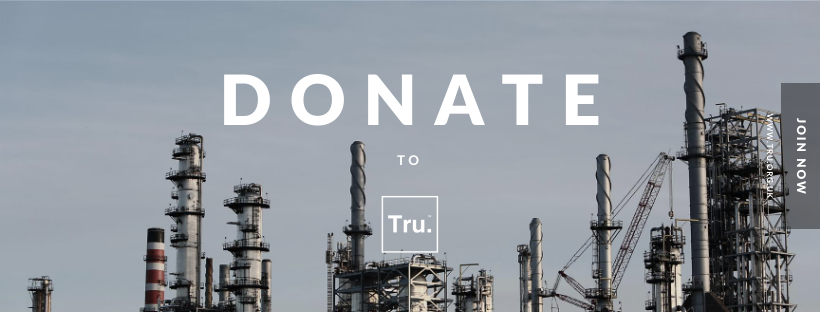Oil Spill in Northern Russia Threatens Arctic
- Katie Byng-Hall
- Jul 30, 2020
- 4 min read
Updated: Aug 3, 2020
Ziryan Aziz investigates the environmental impact of the latest oil spill in one of Russia's most polluted cities - and Putin's response.

Photo by Life of Pix
Russia is tackling yet another environmental catastrophe as a large-scale oil spill in the northern city of Norilsk threatens to enter the Kara Sea if left unchecked.
On the 29th of May, a power plant owned by Russian mining giant Nornickel, the largest nickel and palladium producer in the world, leaked substantial quantities of diesel outside of Norilsk, Russia.
Nornickel states that the spill occurred after a fuel containment tank collapsed. The company has blamed the changing climate for weakening the structure’s foundation, as the Arctic has experienced the greatest increase in temperature than anywhere else around the globe in the past 30 years, and frequently experiences dramatic shifts in weather patterns.
The leaked fuel made its way into both the Ambarnaya and Daldykan Rivers, before travelling 12 miles north to Lake Pyasino, a large freshwater lake. An estimated 21,000 tons of diesel (150,000 barrels) is believed to have been released, and has contaminated both the lake and surrounding subsoil.
You can support us with our mission to help people #stayinformed by joining us today from just £1pm. We are a start up charity.
The Russian Response
The region’s governor has made a public statement that the situation is currently under control with large booms being used to hold back the slick’s advance. Nevertheless, officials believe it could take years to clean up.
The incident has sent the Kremlin into shock, as they issued a state of emergency on the 3rd June. What appears to have frustrated the government has been the lack of communication, as the oil company has admitted that it didn’t report the spill until two days after the accident took place. It was only through social media that the news reached the wider world.
This frustration was seen in a televised exchange between President Vladimir Putin and the head of the Nornickel subsidiary, who ran the power plant, with Putin asking
“Why did government agencies only find out about this two days after the fact? Are we going to learn about emergency situations from social media? Are you quite healthy over there?”
The president of Nornickel, Vladimir Potanin, was also questioned over his response, with Putin telling Mr. Potanin, “if you had changed them [the fuel reservoirs] on time, there would have been no environmental damage and no need to foot such costs”.
Nornickel has promised to cover the costs of the clean-up operation, which is estimated to reach 10bn Roubles (£123.3 Million).
A Repeat of History
Norilsk is no stranger to incidents like this. Sitting 180 miles north of the Arctic Circle, and 2,900 kilometres north-east from Moscow, the city was built by gulag prisoners and was barred from foreigners during the Soviet era. Today, it is internationally famous for being considered one of the most polluted cities in the world, and data from NASA’s OMI satellite shows that fossil fuels burned in Norilsk alone account for 50% of Russia’s emissions.
Back in 2016, locals reported that the river turned red after a similar spill caused by heavy rainfall, and black snow continues to fall over the city during the winter due to unfiltered fumes from coal plants. Because of the factory emissions, next to no vegetation grows within a 20-mile radius of the city, and high rates of lung cancer and other diseases are prevalent amongst the population.
Sulphur Dioxide (S02) emissions from industry based in Norilsk was estimated at 1.9 million tons in 2018, with Nornickel alone producing 70,000 tons from its smelting plants, which is more than Norway released for the entire year of 2018. Despite the company’s promise to cut its S02 emissions by 85% by 2021, it is reported that the technology used to do so turns these emissions into sulfuric acid and gypsum. Both by-products are incredibly destructive to the local environment.
It seems ironic that Nornickel blamed climate change for weakening their infrastructure and thus causing this oil spill, when their industry blatantly contributes to the damage they are inflicting on the surrounding environment.
Our annual publication highlights the challenges faced and the achievements we've made whilst aiming to set a precedent for the sentient, environmental and planetary needs of the future. All money raised is directed to socio-ethical impact and acknowledgement.
A Catalyst for Change?
The coup caused by the extent of this spill has kickstarted the implementation of new amendments to current legislation on environmental protection, to prevent and better manage further oil spills from occurring. Both the Ministry of Natural Resources of Russia and the central government’s legislative powers have said they want to see greater accountability, commitments, and efforts by parties involved in oil production and sale of oil.
The ministry has stated that “every effort must be made so that situations like the one that happened in Norilsk never ever take place again”. With Norilsk’s current record for safeguarding nature, it is a case of waiting to see if these new legislations are to make the impact that is required.
This legislation will force emission spewing companies like Nornickel to take more affirmative action when it comes to cutting emissions. If the corporation does not cut its emissions by 75% it could face fines up to 100 times greater than they currently are. Prior to this, Nornickel was able to brush off lawsuits against its environmental practices given the small size of the penalties. Only time will tell if these laws will bring about any significant change.
We are a socio-ethical impact charity advocating for topics that matter, whilst supporting wider planetary change and acknowledgement. A charitable initiative funded by readers like you. | To support our work and journalism, consider becoming an advocate from just £1.














Comments